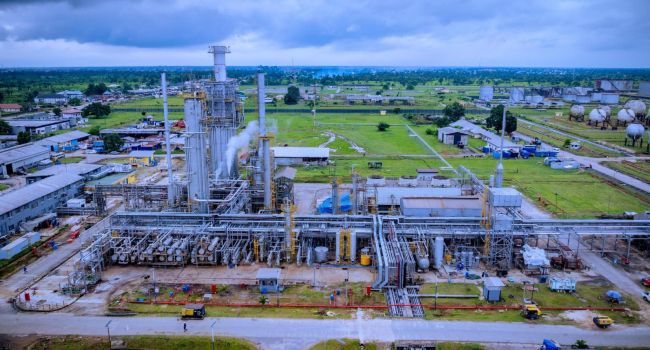Gas Supply to Geometric Power Resumes, as More People Now Receive Electricity
Oil Marketers Urge Privatisation of Nigerian Refineries

Oil marketers under the Petroleum Products Retail Outlets Owners Association of Nigeria (PETROAN) have called on the Federal Government to privatise state-owned refineries, including the 125,000 barrels per day Warri and Kaduna refineries, as part of broader reforms to enhance transparency, competition, and operational efficiency in the downstream petroleum sector.
In a report titled 2024 Retrospect and Outlook for 2025, released on Saturday in Abuja, PETROAN also urged the government to prioritise infrastructure investment, enforce local content development, expand Compressed Natural Gas (CNG) adoption by 2025, and curb petroleum product smuggling.
The document, signed by PETROAN leaders including National President Billy Gillis-Harry, National Secretary Adedibu Aderibigbe, and National Public Relations Officer Dr Joseph Obele, detailed recommendations for consolidating progress in the sector.
Privatisation and Market Reforms
The marketers advocated the privatisation of government-owned refineries to reputable private companies, asserting that such a move would improve efficiency and reduce government expenditure.
They also stressed fostering a competitive market by encouraging new entrants to eliminate monopolies, ensure fair pricing, and enhance regulatory compliance through a robust monitoring framework.
“Foster a competitive market by encouraging new entrants and promoting a level playing field to prevent monopolies and ensure fair pricing.
“Establish a robust monitoring and evaluation framework to track the performance of downstream operators and ensure compliance with regulatory requirements.
“Continue to invest in critical infrastructure and preventive maintenance, such as refineries, pipelines, and storage facilities, to improve the country’s refining capacity and reduce reliance on imported petroleum products.
“Encourage the development of local content by supporting indigenous companies and providing incentives for research and development in the downstream sector.
“Private sector participation should be encouraged to increase access to funding and expertise. Regulatory frameworks should be reviewed to reduce operational costs and attract investment. Stakeholder engagement and awareness campaigns should be intensified to promote the adoption of CNG.
“Collaborate with neighbouring countries to strengthen border security and prevent smuggling, and also utilise digital tracking systems to monitor petroleum products from refineries to retail outlets.
The document added, “To boost Nigeria’s refining capacity and reduce reliance on imported petroleum products, we strongly recommend that crude oil be made available for local refineries.
“This strategic move will have a positive impact on the country’s economy and energy security. By prioritising local refineries’ access to crude oil, Nigeria can unlock the full potential of its refining sector, drive economic growth, and enhance energy security.
“PETROAN requests a grant of N100 billion from President Bola Tinubu to help prevent the closure of 10,000 marketers’ businesses. The request is in response to the threat of job losses that would result from the removal of the fuel subsidy.”
The report highlighted key sectoral achievements in 2024, including the deregulation of the downstream sector, infrastructure construction, the rehabilitation of the old Port Harcourt refinery, and the commencement of operations at the Dangote Refinery.
“The Dangote Refinery’s prices were initially competitive, putting pressure on the NNPC Limited to review its pricing strategy. This competition ultimately benefited consumers, who enjoyed relatively stable and lower prices for petroleum products.”
However, the marketers urged the government to address vandalism, inadequate infrastructure, limited Compressed Natural Gas stations and distribution networks, and high operating costs, especially compressing and transporting natural gas.






